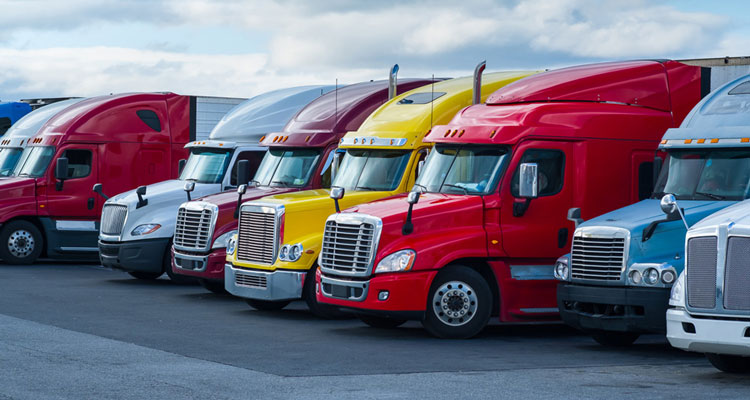Whether shopping for groceries, considering an online purchase, or making business decisions, counting costs is more critical in today’s market than ever. Although the cost of most things has risen significantly over the past few years, there are ways to approach purchases to trim the fat and distill down to absolute necessities to keep your business going and help make it even more profitable. In the trucking industry, managing costs effectively is about survival and thriving in a competitive market.
Fuel Costs: Mastering the Art of Fuel Efficiency
With fuel expenses being a major variable cost – certainly one of the most significant trucking costs – strategic planning can lead to substantial savings. Implementing fuel-efficient driving techniques substantially lowers fuel consumption and maximizes mileage. Adopt practices such as gradual acceleration, avoiding idling, and using cruise control to maintain a steady speed. Keeping tires properly inflated can also increase fuel efficiency, garnering more miles to the gallon. Utilizing fuel management systems to track and optimize fuel usage can lead to more intelligent purchasing decisions.
Maintenance and Repair
Effective maintenance scheduling, like regular engine diagnostics and timely part replacements, extends vehicle life and prevents costly downtime. Additional education equips drivers with the knowledge and understanding to identify issues early and how to deal with them most cost-effectively. Implementing a vehicle maintenance management system can help track service schedules and manage repair histories efficiently. Building relationships with trusted mechanics and suppliers ensures quality service and potentially negotiable rates.
Regulatory Fees, Taxes, and Permits
As with virtually any business across all industries, an additional component of trucking costs is paying the associated taxes and regulatory fees and acquiring necessary permits. Compliance with regulations, including Form 2290, is non-negotiable, but understanding these fees can help budget accurately. Staying updated with regulatory changes through industry associations or online resources is crucial to avoid penalties and minimize trucking costs: organization and good record-keeping help to prepare you for tax season. Leveraging tax professionals for accurate and timely filings can not only prevent costly mistakes and ensure compliance but also help to ensure that you’re paying attention to ways to reduce the amount of unnecessary taxes paid. There are plenty of 2290 e-filing services out there to help you.
Leveraging Technology for Cost Efficiency
Modern technology has changed virtually every aspect of our lives – in most cases, making things more convenient, more efficient, and more cost-effective. Time is money, as they say, so whether it’s an app that reduces time spent hunting down financial records or a program or service that expedites logistics, leveraging technology can help add to your bottom line and help shave down some of your trucking costs. Installing cargo sensors in trailers allows you to detect available space, which can be utilized to coordinate additional stops along a route and streamline deliveries to maximize profits. Utilizing telematics systems for real-time vehicle monitoring helps make data-driven decisions to optimize operational efficiency.
Route Optimization: Cutting Costs Beyond Fuel
Intelligent route planning reduces fuel costs and wear and tear on vehicles. . Strategic planning and route optimization include scheduling deliveries and pick-ups in such a way as to minimize empty runs and maximize vehicle utilization.
Staying abreast of highway improvement plans helps with route planning to avoid the traffic jams and subsequent delays associated with road construction. Planning around holidays can also prevent congestion and improve efficiency. This is true not only concerning an increase in the number of people traveling to visit relatives but also concerning the demand for consumer goods as Christmas approaches, which directly impacts the trucking industry, highlighting the criticality of route selection. With the potential for iced-over bridges, detours, or other unforeseen delays, planning to account for winter weather is essential.



